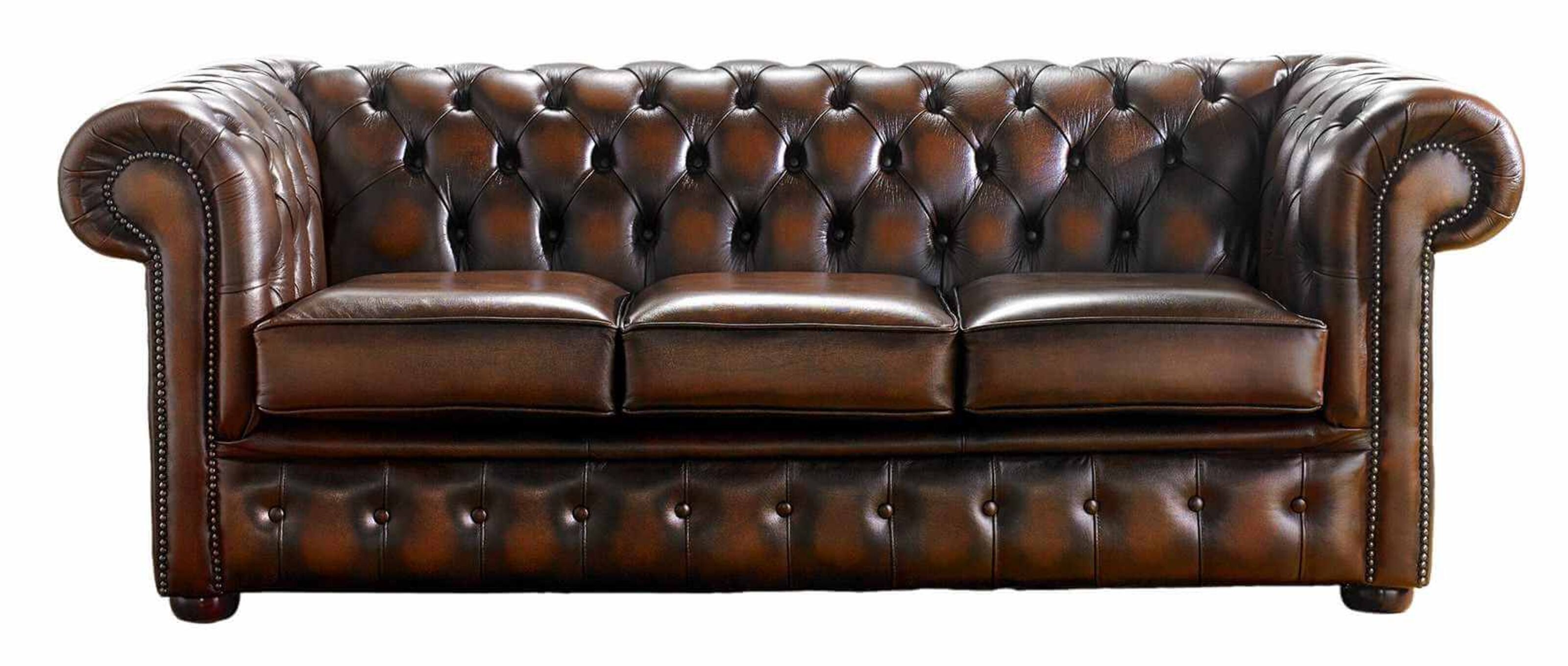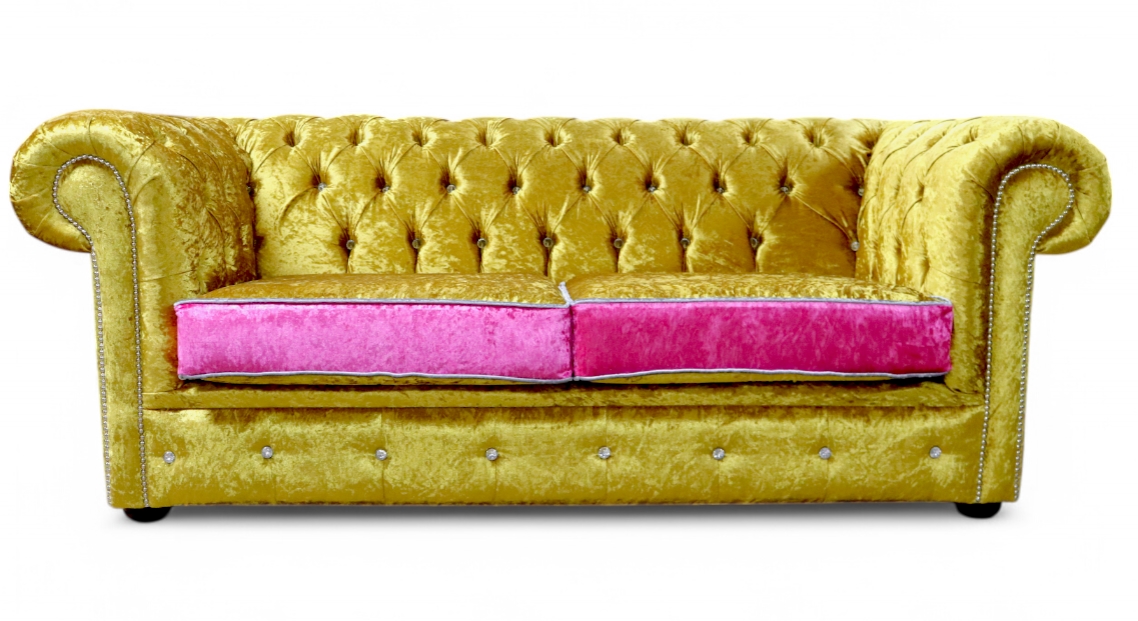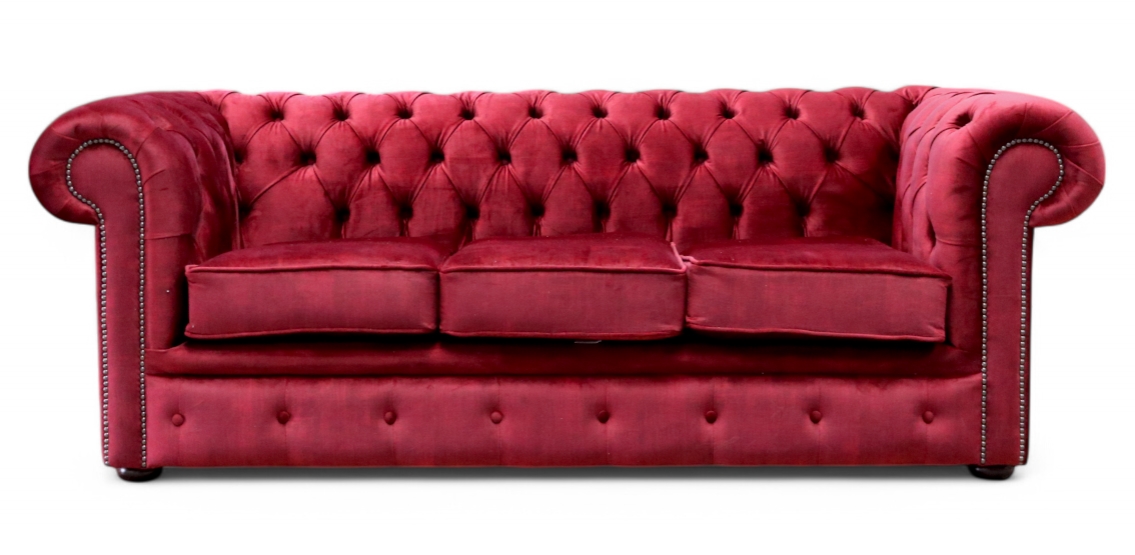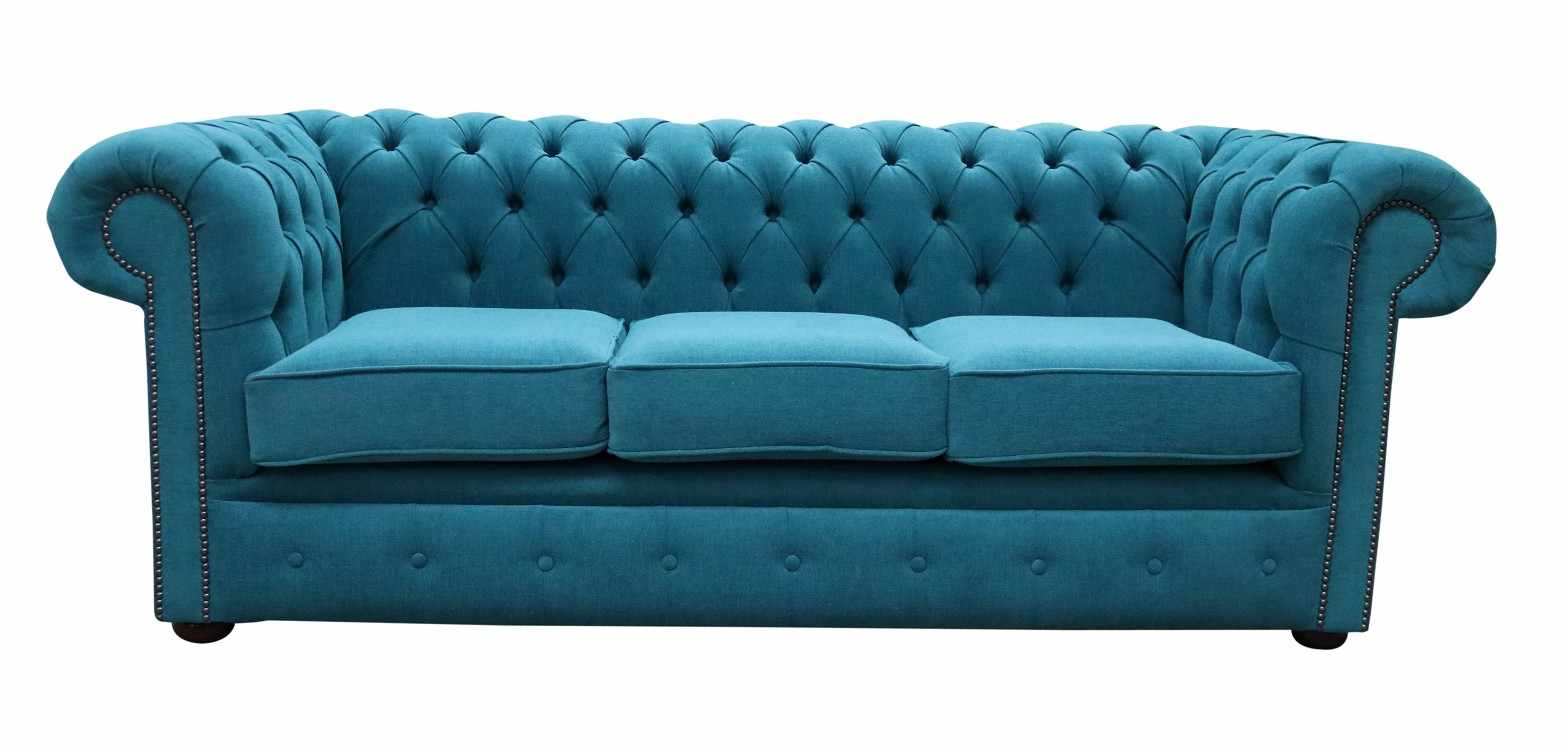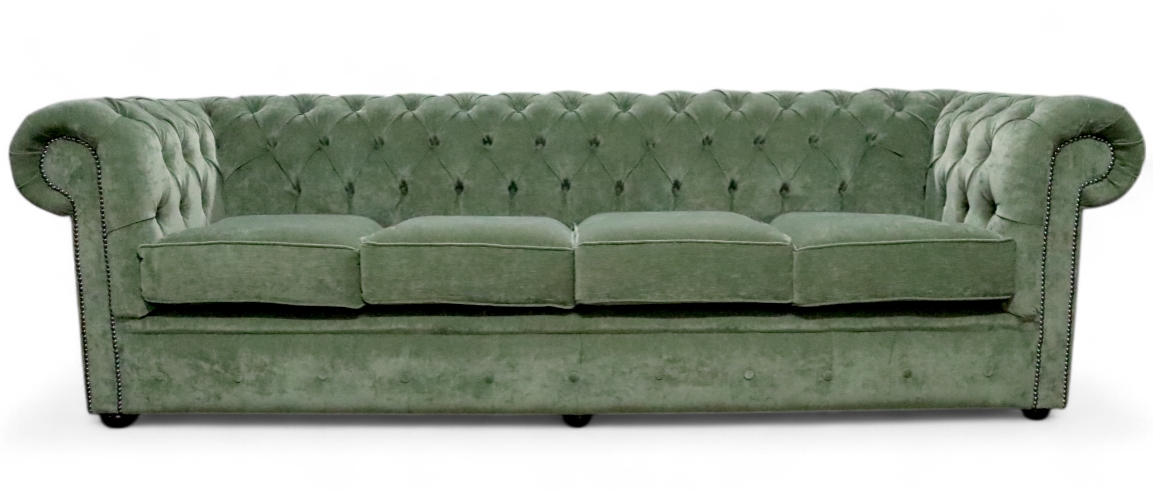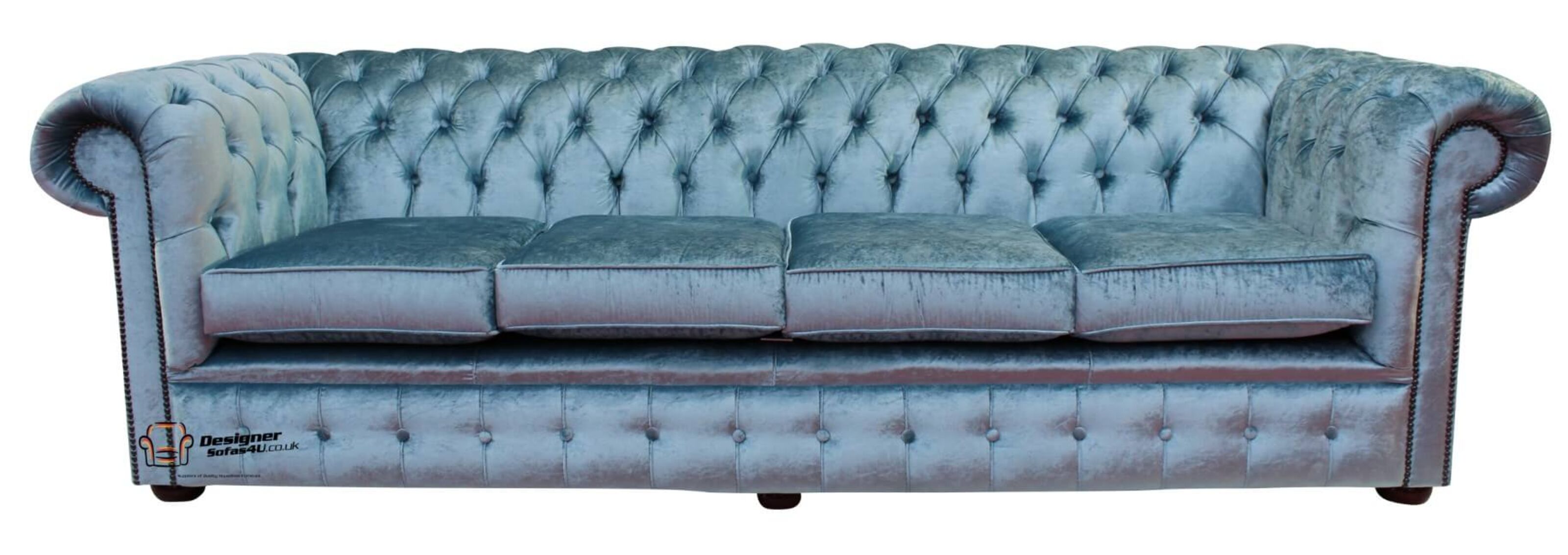THE CHESTERFIELD
The chesterfield sofa is the world’s best-known iconic British design when it comes to upholstered furniture. A highly distinctive visual design, the essential characteristics of chesterfield furniture have been preserved since its origin in 1780.
PROUD TO BE ECCENTRIC
A belief that one object of genuine quality is worth more than a sea of mass-produce alternatives remains fundamental for us and for all willing eccentrics.
MADE IN ENGLAND
DELIVERED WORLDWIDE
All furniture is hand-made to order and delivered direct to clients worldwide. A unique and personalized approach to design and comfort.
Original Chesterfield Sofas
We’ve been making furniture in our UK factory for over 40 years.
Vintage Chesterfield Sofas
We have a huge collection of Vintage sofas in stock for immediate delivery.
7 Upholstery Options
Choose from 4 styles of Premium Leather, Wool, Velvet & Vegan ‘faux’ leather.
Worldwide Shipping
Using specialist carriers we can ship our Chesterfields anywhere in the world..
Great British Chesterfields is a family company based in Bolton, Lancashire. We’ve been in the Chesterfield business since July 1980 and is now run by our third generation, a proper family affair!
We use two local factories to hand make all our Chesterfields and deliveries are carried out by in-house teams of 2 ensuring smooth deliveries convenient for you.
All our sofas are made with solid hardwood frames and full grain leather, we don’t use MDF, plywood or chipboard. We use full leather for sides and cushions and will never use PU leather, coated leather or inferior materials.
The History of Chesterfield Sofas
The Chesterfield sofa, with its low back, rolled arms and deeply buttoned upholstery, is a timeless design classic that evokes elegant gentleman’s clubs, country houses and Victorian living rooms. Though they remain symbols of style, luxury and the upper classes; these days a Chesterfield fits as well into a light and airy modern flat as it does a wood-panelled smoking room. In this blog we explore the history of this unique piece of furniture, and how a design created 300 years ago has stood the test of time and evolved with changing fashions.
THE EARL OF CHESTERFIELD
Although the real origins of the Chesterfield sofa design are somewhat shrouded in mystery and lost to time, many people believe that it originated with the 4th Earl of Chesterfield, Lord Phillip Stanhope. A common but probably apocryphal legend has it that, on his deathbed, he was visited by his godson Solomon Dayrolles and, when he said “give Mr Dayrolles a chair” just before passing away, his servant took him at his word and sent Daryolles away with an elegant leather-covered chair with deep-set buttons.
It’s not clear whether the Earl can really be credited with the invention of the Chesterfield, but it is likely that it originated around the time he lived. It may well have derived from a French design that was popular around the same time and which, like the Chesterfield, had a back that flowed seamlessly into the arms in such a way as to give it a cosy and welcoming shape.
If the Earl did either design or commission a sofa similar to a Chesterfield sofa it would not be surprising; the buttoning and upright back were popular at the time as they allowed a man to sit in comfort but without slouching, sinking into the upholstery, or crumpling his clothes. It is, however, perhaps more likely that the Earl of Chesterfield’s sofa was upholstered in velvet, since this was used much more frequently than leather for this kind of deep-buttoned furniture.
THE VICTORIANS
While we can’t be quite sure what kind of sofa the Earl of Chesterfield really used, we do know that by the mid 19th Century, they were becoming popular in Victorian homes. Perhaps the most notable example is that in an 1857 picture of the recently redecorated Balmoral Castle can be seen two sofas that are quite clearly what we now consider Chesterfields, with the exception that they are upholstered in a vibrant tartan that matches many of the other furnishings in the room.
Back in London, leather Chesterfields that looked very like those we know today were becoming more and more popular in the homes and, especially, the offices of wealthy gentleman. Interestingly, while they looked much like modern chesterfields, the construction was rather different. They would have been simply stuffed with horsehair rather than having spring cushions, and the buttoning probably made the tough, un-sprung leather a lot less comfortable than the sofas we think of today. One theory goes that this was deliberate, and these sofas were commissioned for ante-rooms and waiting areas outside offices, where visitors to the great and good of Victorian London could wait to be seen without getting too comfortable
As time went on, however, sprung cushions were added to the sofas, and they became more comfortable. By the middle of the 19th Century, Chesterfield sofas were a firm favourite in the living rooms of wealthy Victorians and, from there, rapidly also became popular in the ‘homes away from home’ that were the libraries and smoking rooms of London’s gentlemen’s clubs, now strongly associated with the Chesterfield.
THE BRITISH EMPIRE
With the British upper classes now so comfortable on Chesterfield sofas in their homes and clubs, it is hardly surprising that they began to be exported to the furthest-flung corners of the British Empire by army officers and colonial administrators seeking to furnish their residences in India, Canada, Australia and elsewhere. Unsurprisingly, the elegant and classic design remained popular long after the British Empire receded, and today Chesterfields are found in luxury hotel lobbies, private clubs and elegant homes across the globe.
THE BRITISH EMPIRE
With the British upper classes now so comfortable on Chesterfield sofas in their homes and clubs, it is hardly surprising that they began to be exported to the furthest-flung corners of the British Empire by army officers and colonial administrators seeking to furnish their residences in India, Canada, Australia and elsewhere. Unsurprisingly, the elegant and classic design remained popular long after the British Empire receded, and today Chesterfields are found in luxury hotel lobbies, private clubs and elegant homes across the globe.

